Spring is a time for new growth to stir, and Perry’s housing sector is stirring in several directions this spring. The latest developments include two new projects for apartment complexes, a much-anticipated report from the Perry Residential Housing Task Force and the city council’s possible adoption of a plan for every-other-year inspections of rental properties.
Two development companies recently learned their apartment projects for Perry were awarded tax credits from the Iowa Finance Authority (IFA). The credits will help finance construction of a 36-unit senior housing facility at the site of the former Perry Junior High School at 2023 Willis Ave. and a 38-unit low-income apartment complex on the lot south of the Perry Police Department offices at 913 Willis Ave.
Newbury Living, a West Des Moines property development company, teamed up with the Nudgers development group in Perry to land Low-Income Housing Tax Credits (LIHTCs) for the senior housing project, which will occupy half the block on the former school site.
Newbury’s application for LIHTCs for a second project to fill the rest of the block was unsuccessful.

“We were very pleasantly surprised to win this award,” said Frank Levy, president of Newbury Living. “The round was very competitive and our expectations were low.”
The Newbury project is called the Hamlin-Bell Building in honor of famous Perry cartoonist V. T. “Snick” Hamlin and renowned Perry tuba player William Bell.
“We think the project will fill an important gap in the continuum of housing available for Perry seniors,” Levy said, “while also helping fulfill the redevelopment goals of the City and the Nudgers.”
The Hamlin-Bell complex is expected to cost about $7 million and will take about one year to build, Levy said.
“The next step is to finalize our construction drawings, which will be publicly presented for approval,” he said. “We hope to begin construction before cold weather sets in.”
Levy won city approval for the senior housing plan in 2013 thanks to several presentations he made before the Perry City Council, along with his associates Robert Rafferty, attorney with the Des Moines law firm Brick Gentry, and Brent Schipper, architect at ASK Studio in Des Moines.
Perry gave Newbury Living the Willis Avenue land for the project, a buy-in that helped the company win the LIHTCs.
An avid bicyclist, Levy has often praised Perry’s location on the Raccoon River Valley Trail and has jokingly promised to one day give a presentation to the city council while wearing his biking gear. He said last week his promise still holds.
“I am truly looking forward to showing up at City Council meetings in my bike kit,” Levy said. “The only concern is whether my bike cleats will scratch the beautiful flooring in City Hall.”
Tax credits for a second apartment project, provisionally called the Willis Avenue Apartments and located just east of Pattee Park and across the street from the police station, were awarded to Kinosha, Wis.-based Bear Development. The company owns and manages about 90 properties in 10 states, including single-family houses, apartment complexes, hotels, retail and commercial spaces and industrial sites.

Bear Development Senior Project Manager Joe Schwenker said the total cost of the Willis Avenue Apartments will be about 6.3 million.
“LIHTC is a large portion of the financing package,” Schwenker said, “but there will be other sources.” He said Bear Development chose Perry as a site to develop “workforce housing”–typically for households earning between $20,000 and $40,000 a year–for several reasons.
“We did a scan of Iowa locations and matched these locations with IFA’s priorities, and Perry was a match,” he said. “There are a variety of factors that go into the selection process–site, location, market. We hope to be thorough in our market assessment, and this is based on a variety of demographic factors, like age, income, population growth and others, and also on economic factors, like jobs and growth patterns, and of course competition.”
“We are pleased the IFA selected us and Perry,” Schwenker said.
He said some of Perry’s particular strengths as a development opportunity are its stable population, employer base and proximity to the Des Moines metro. There are also potential risks, he said.
“It’s not specific to Perry, but smaller markets have less employment diversity than larger markets,” he said. “So if a major employer were to close, this could have a negative impact. And there are the normal risks associated with any construction project–cost overruns, higher interest rates, building the right product for the market.”
Schwenker said the Willis Avenue Apartments are not yet a done deal but have taken a big step in that direction.
“A real estate deal is never done until it closes, and there are risks–rates could go up, costs could go up, the financial markets could crash,” he said. “Ideally, we hope to break ground in fall with completion next summer. By virtue of the IFA program, there are various checks and balances that will keep the property in good condition for an extended period of time.”
Perry Mayor Jay Pattee said he was “pleased” with Bear Development’s Perry project and their landing the LIHTCs. He said he investigated Bear Development and “could find nothing bad about either their properties or their management.”
Pattee said he “did more due diligence than on most projects because I know people are concerned that an out-of-town developer might not have Perry’s best interest at heart, and people are also concerned about the future of Perry.”
The mayor has said repeatedly the two things about a community most important to people considering moving there are the quality of the schools and the quality of the housing. The general perception of Perry in the wider world, he said, “is that we are deficient in both.”
Pattee said he believes the perception is wrong, but it is nevertheless the prevailing perception and one the town must work to overcome.
“I have reservation.” –Alice Miskimins

While the mayor and city council showed solid support for the Willis Avenue Apartments, other local residents have expressed skepticism about the Bear Development project.
“I have reservations,” said Alice Miskimins, owner of Alice’s Haus Dressin, an interior design store that will border the Willis Avenue Apartments to the east. “It looks like a nice building from the architect’s drawing, but then they always do,” she said.
Miskimins also sits on the Perry Planning and Zoning Commission, which heard a presentation from Bear Development last fall and approved the zoning changes needed for the project. She said should would like to visit some Bear Development properties and see for herself what sort of housing they provide.
Some Perry residents have also raised broader concerns about the surplus of low-income rental properties in Perry and the risk it poses of stifling the building and buying of middle-income single-family houses in Perry. The city’s help in the Bear Development project drew particular criticism at recent Perry City Council meetings.
Perry High School history instructor and former Perry City Council member Eddie Diaz, who opposed the Bear Development project, said he was surprised it won the tax credits. He was led to believe it had a less than 50 percent chance, he said.

“Our main objection in this whole process was that we didn’t feel the city was taking a comprehensive approach to housing needs in Perry,” Diaz said. “By incentivizing Bear Development and giving them land, they were hurting other needs of the city.”
The city council voted to vacate a city-owned alleyway on the property, facilitating its sale to Bear Development and “incentivizing” the project.
Diaz said the pressure he and his fellow citizens brought to bear on the issue served a useful purpose even though the council did not embrace their recommendations.
“This will keep the council’s attention focused,” he said. “From my previous experience, I know that once the council votes on something, then it’s out of sight, out of mind. Now that this project’s approved, we want to make sure it meets the highest standards, and if Bear Development builds substandard apartments, I’m confident the city will hold them to a higher standard thanks to the attention we’ve brought to this issue.”
“This will keep the council’s attention focused.” –Eddie Diaz
Diaz was joined in his opposition to the Bear Development plan by a number of other Perry residents, including Kevin Wicks, a 2003 graduate of Perry High School who lives in Perry and runs a small business, and T.J. Maylum, a physical education and special-needs teacher at Perry High School. They oppose any further expansion of the city’s stock of low-income housing unless it is matched by new middle-income single-family housing.
“Until the city comes up with a comprehensive plan that also includes the development of single-family housing, we shouldn’t be encouraging the building of more workforce housing,” Wicks said.
Maylum shared Diaz’s and Wicks’ concern for the direction of Perry’s development and the chronic absence of new-home construction inside the city limits. He said Perry has seen few if any new homes built since 2000.

“There’s a shortage of low-income housing nationwide,” Maylum told the city council, “but Perry actually has an oversupply of it already. We’re concerned that people who are thinking of moving here are finding shortages in other kinds of housing in Perry.”
Residential Housing Task Force issues report, will present recommendations to city council
As if in answer to Maylum’s objections, the Perry Residential Housing Task Force organized itself late last year as a vehicle to understand and address the problem of Perry’s old and run-down housing stock and the city’s stagnant market in new home construction. Very few new homes have been built within the city limits of Perry in the last 20 years and none since 2011.
The task force was composed of several city council members as well as representatives from Perry Industries, an investment group formed nearly 60 years ago to promote economic development in Perry. Members of Perry Industries include local bankers, lawyers, factory owners, realtors, insurers, long-term care providers, ag industrialists, telecommunications service providers and others. Figures from city government, the school and community college districts and county development organizations are also permanent guests of Perry Industries.
The housing task force first met in early December and held half-a-dozen meetings, according to the group’s chairperson, Raccoon Valley Bank Credit Analyst Matt McDevitt of Perry. The group issued its findings Friday in a report and will present its recommendations at the April 6 meeting of the Perry City Council.
McDevitt said the task force sought insight and advice from many sources. They heard presentations from lenders and realtors who discussed property tax abatement schemes, from developers who explained what people in their line want to see before building spec homes, from economic development specialists who talked about housing’s importance in a community’s development toolbox and of funding opportunities available from the state, and from experts in the legal and financial details of the municipal bond trade who explained the use of property tax abatements and tax increment financing (TIF) to foster growth in the local housing sector.

Among its findings, the task force “became aware of several small-town communities who have actually been passed over for placement of new manufacturing businesses due to a lack of inventory of relatively affordable, newer middle-class housing,” the report said. “To be able to remain competitive with other communities for attracting new and retaining current residents and attracting new businesses, it is imperative that Perry take the necessary steps to facilitate housing development immediately,” the housing report said.
The report said the housing task force also “heard from an economist who indicated that Perry is less likely to capture the white-collar, two-parent, college-educated, relatively affluent families commuting to Des Moines, as Perry is too far north and west and potentially too heterogeneous demographically, but we should be able to capture new residents from smaller, more rural communities instead.”
The task force invited a number of city administrators and development directors from towns within a 90-minute drive of Des Moines to share their experiences in fostering residential housing growth. The group also discovered a common perception about the Perry Community School District: people believe the Perry schools are defective and have a lot of room for improvement.
“The perception is shared by several current Perry residents and outsiders alike,” the report said. “Several third-party school-ranking sites on the internet and available on social media rank Perry toward the bottom of all area schools in terms of overall quality.” Mayor Pattee has also noted this common misconception about the Perry schools.
Perry is relatively poor in comparison with the rest of Dallas County, and its lower socioeconomic status has a big impact on student achievement, the report said. Children of poorer families generally perform less well on standardized tests than children of families with higher incomes. Perry’s median household income is $42,354, while the Dallas County median is $73,847. Education often tracks with income, and only about 12 percent of Perry residents has a bachelor’s degree or higher, while the countywide rate is 44 percent. All these factors influence people’s opinions about the town and its schools.
“The Perry Community School District faces some difficult demographic headwinds,” the report said, “but the school system must continually strive to improve, must do a better job of marketing the educational opportunities afforded to students and better champion their successes to help combat its image problem.”
“We now realize that we must comprehensively address the housing conundrum.” –Matt McDevitt
Along with a more housing-friendly climate and an improved image for the schools, the task force strongly recommended the active promotion of Perry’s amenities–including the Raccoon River Valley and High Trestle trails, the Perry soccer complex and a planned outdoor pool and water park.
The report also recommended sweeteners to attract young families with middle-class incomes, such as free memberships to the McCreary Community Building and the Perry Golf and Country Club, gift certificates for goods and services from Perry merchants and direct cash gifts from local banks or credit unions to apply toward a house’s closing costs.
In its final phase, housing task force members also conducted their own series of community case studies, visiting and learning about successful housing initiatives in Adel, Indianola, Polk City, Guthrie Center and Bondurant, all towns vigorously promoting new home construction and attracting new resident owners.
“The group compared and contrasted Perry to what we’ve learned about other communities,” McDevitt said, “and has come to the realization that we need two things: first, a robust housing initiative, possibly encompassing both tax abatement and TIF, for both new housing and rehabilitation, and second, a multifaceted marketing effort–of the city, the schools, Perry Industries and our other business partners–to rebrand and refresh the public’s perception of Perry. We now realize that we must comprehensively address the housing conundrum.”
Although not a member of the housing task force, former Perry City Council member Diaz said he strongly supports the work of the housing task force.
“The city should support this group in every way,” Diaz said. “We should have started this first. I wish, when I was on the council, we’d had the foresight to get ahead of the housing issues back in 2010 or 2011. We could have tackled these ideas then instead of making it more challenging for ourselves now with Bear Development coming to town.”
The Perry Residential Housing Task Force will present its detailed findings and discuss its recommendations at the Perry City Council meeting Monday, April 6 at 6 p.m. in the Clarion Room of the Security Bank Building, 1102 Willis Ave. in Perry. A community-wide meeting is planned for after the Labor Day holiday to kick off the housing initiative.
City Council considers revised rental ordinance, including regular inspections of all rental units in Perry
The springtime in Perry housing also includes recent efforts to revise the city’s rental ordinance to include a regular regime of rental-property inspections. At its last meeting, the Perry City Council listened to public comments both for and against the idea of biannual inspections before moving to schedule for April 6 a first reading and public hearing on the proposed ordinance.
Although the council’s rental-ordinance committee has been meeting for more than a year in an effort to hammer out details of an inspection system, the discussion at the last council meeting gained added weight by coming in the wake of the announcement by the Iowa Finance Authority of the LIHTC awards.
“These three have spent a lot of time on this revised ordinance,” said Perry City Council member Chuck Schott of his fellow rental-ordinance committee members, Council member Barb Wolling, Council member John Andorf and City Building Official Steve Tibbles. “We’ve been going over it and thinking and cussing and adding things and changing things,” Schott said.
He said some provisions of the current rental ordinance have been “overlooked, ignored or not enforced for a long, long time.” Local landlords have consistently prevented a regular system of inspections.
According to the proposed revised ordinance, “No owner or any other person shall rent or let to another person any dwelling unless it and the premises are clean, sanitary and fit for human occupancy as required by this chapter and applicable State Statutes (Iowa Code 562A.15) and a current rental permit has been issued.”
Although the current draft of the revised ordinance does not specify the cost of the rental permit, a $25 fee has been mentioned in discussions. The new ordinance also spells out more precisely the maintenance duties of both the property owner and the renter. Compliance orders would be issued by the city, and a property owner could appeal an order to a Rental-Code Board of Appeals.
The rental permit would be issued or renewed every two years at the time of the inspection. If a tenant or city inspector believes “a material and substantial noncompliance” with the maintenance terms of the rental code has occurred, he or she could petition the Board of Appeals for a revocation of the permit.
“I’m satisfied with the revised rental code the way it is,” said Council member Wolling. “We took the things that seemed to be most sticky and came up with a plan that safeguarded landlords and tenants both.”
“The ordinance is down to earth and pretty basic as far as guaranteeing the safety of tenants,” Council member Andorf said. “And I’ll be on the receiving end of this, too, insofar as I’m a landlord and will have to meet these standards and pay these fees.”
Wolling and Schott are also owners of rental property in Perry.
“We tried to keep it as simple and non-invasive as possible,” Schott said, “while also upholding the rights of tenants to the basic things needed to live. The majority of landlords are good people who try to abide by the code, but you do get the occasional bad landlord just as the occasional bad renter can cause problems.”
Perry City Council members Dr. Randy McCaulley and Phil Stone and Perry Mayor Jay Pattee praised the work of the rental-ordinance committee.
“We’re fortunate to have council members who’ve had the time to do this work and who are also owners of rental property,” McCaulley said. “It will also mean a lot of responsibility on Steve’s shoulders,” he said.
Perry Building Official Steve Tibbles will conduct the inspections. One proposal calls for inspecting half the city’s rental properties the first year and the other half the second year.
“This is a very gentle ordinance. If this ordinance worries you, then maybe you should be worried.” –Perry Mayor Jay Pattee
“The good landlords have nothing to worry about,” said Pattee. “This is a very gentle ordinance. If this ordinance worries you, then maybe you should be worried,” he said.
Schott and Pattee also suggested extending the inspection regime to single-family houses on the rental market in Perry.
Contrary to the council’s favorable impression of the revised ordinance, a number of owners and managers of rental properties in Perry warned the council the inspections will force up rents.
Jennifer Priest of Perry, manager of the Perry Park Apartments and the Southlawn Apartments, said the inspections would lead to higher rents for low-income tenants in her buildings.
“There’s a big bunch of us opposed to these new ordinances,” Priest said.
Wilbur Manor of Perry and Wilford Roberts of Perry, both owners of rental properties, agreed with Priest.
“This will be a burden on renters and will not be cost effective,” Roberts said. “”I will have to raise rent on them,” he said.
Not all landlords oppose inspections. With 84 rental units in Perry, Urbandale-based Kading Properties is the city’s biggest owner of rental property. Karie Kading, business manager for Kading Properties, said her company welcomes the proposed inspection regime.
“We’re in support of the Perry ordinance,” Kading said. “We see it as a good way for the city to control its rental properties and make sure things are kept up to code.” She said Kading Properties has more than 1,000 rental units around the state and is used to city inspectors.
“I don’t think (the Perry ordinance) will necessarily impact us at all,” she said. “We have many properties all over Iowa, including many in cities that already have rental inspections, so we deal with inspections all the time. We keep our properties safe and in good condition, so it’s really no problem.”
Ryan Huffman, senior vice president of Cohen-Esry Real Estate Services, the Overland Park, Kan.-based owner of the 30-unit Quail Run Apartments in Perry, said his company opposes the proposed inspection plan in Perry.
“Generally, our firm has been opposed to rental inspection ordinances,” Huffman said. “We often find city councils trying to solve the problems caused by a few bad landlords with a plan that is costly to the good folks, to the majority of good landlords who play by the rules and maintain their properties correctly.”
Although their footprint in Perry is smaller than Kading Properties’, Cohen-Esry in a much larger operation overall, with about 13,000 rental properties in 10 states, Huffman said.
“We recommend really focusing on and going after the few bad apples in the local rental market,” he said.
Huffman said affordable-housing projects financed with LIHTCs, which are tax credits issued by the U.S. Internal Revenue Service and doled out at the state level by agencies such as the Iowa Finance Authority, already face a strict state inspection system.
“We’re already inspected every two years by the state, and we pay asset-management fees,” he said. City-level inspections are a duplication of labor, Huffman said.
Former council member Diaz said rental inspections “are worth a shot. I don’t know how effective they will be, and we’ll need some way to measure their effectiveness. If they don’t work, we will have to try other ways.”
The Perry City Council will hold a public hearing on the proposed revised rental ordinance at its next meeting, Monday, April 6 at 6 p.m. in the Clarion Room of the Security Bank Building, 1102 Willis Ave. in Perry.










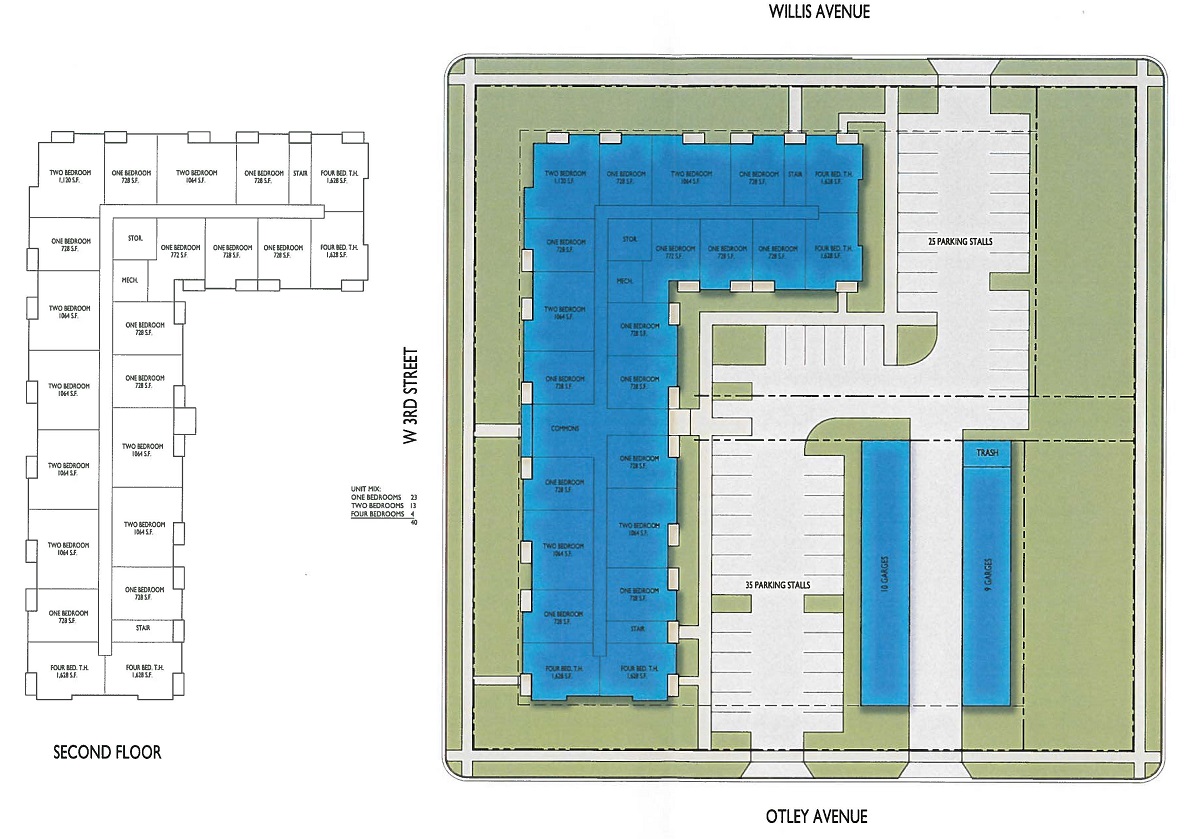


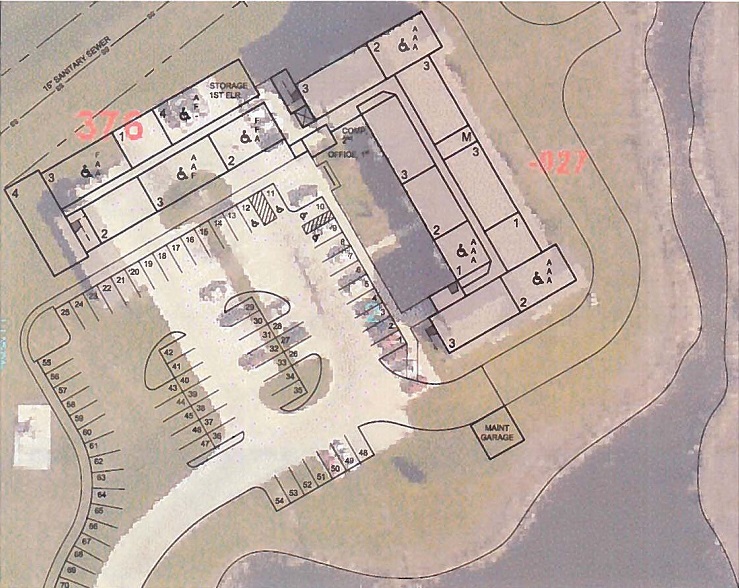
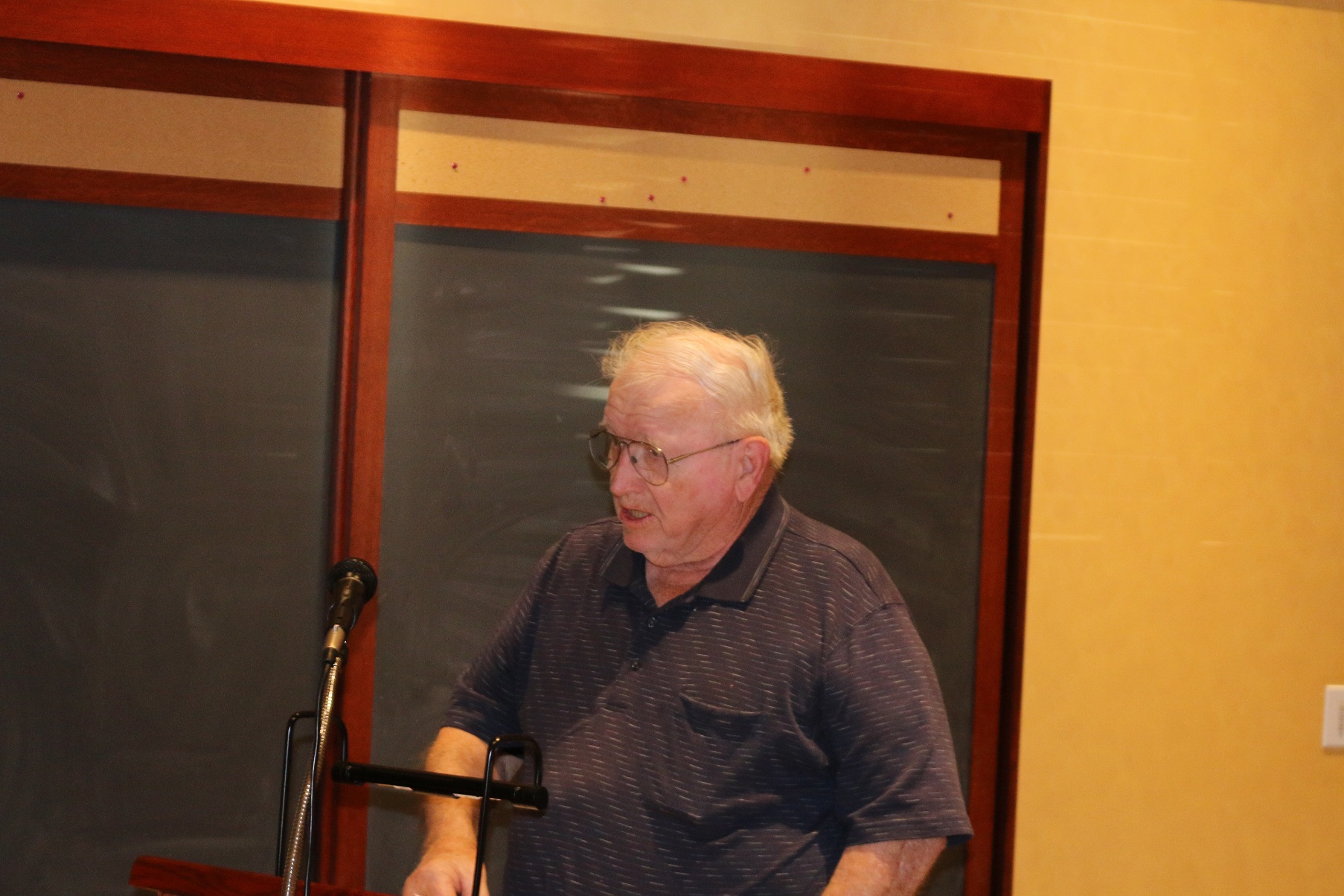

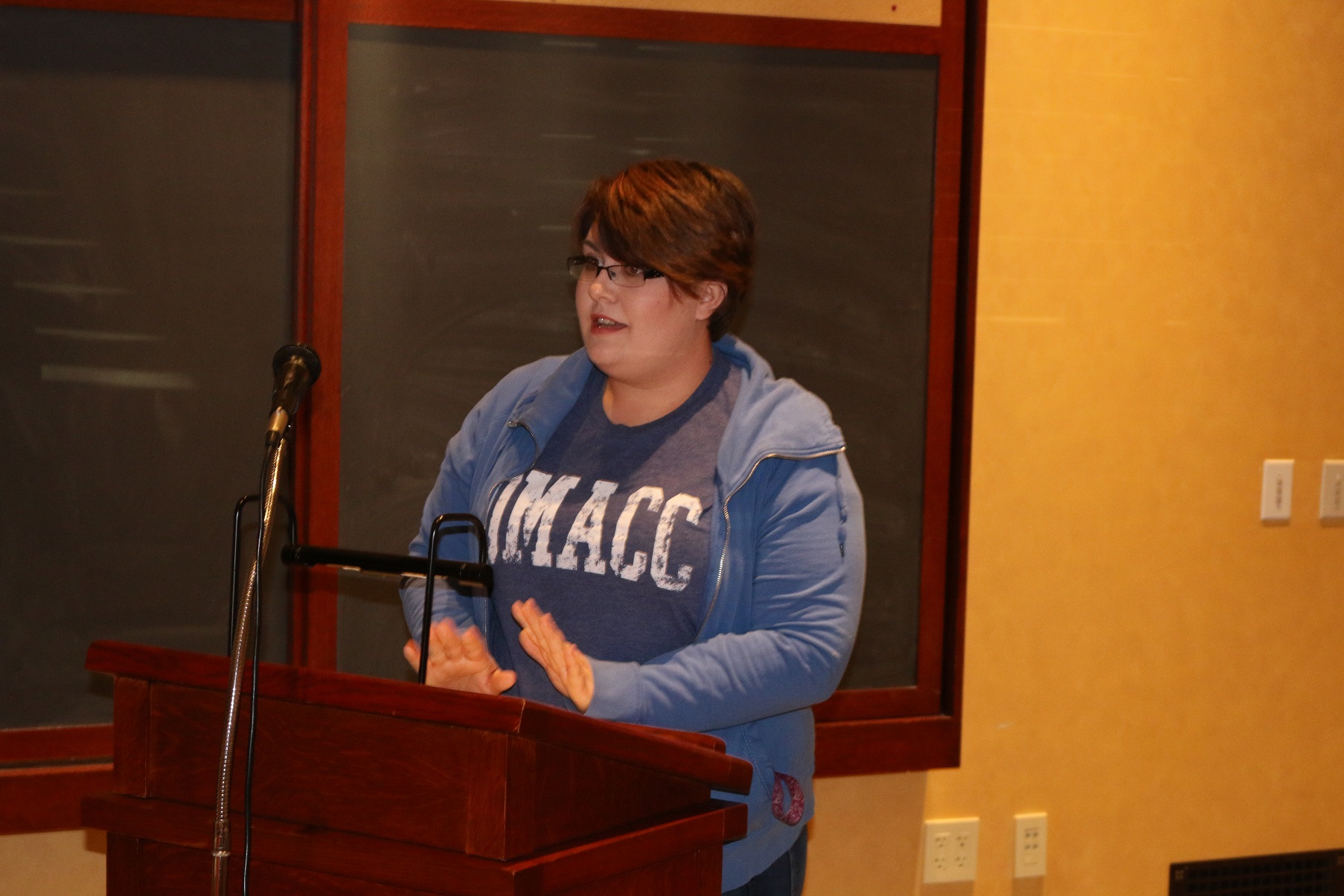
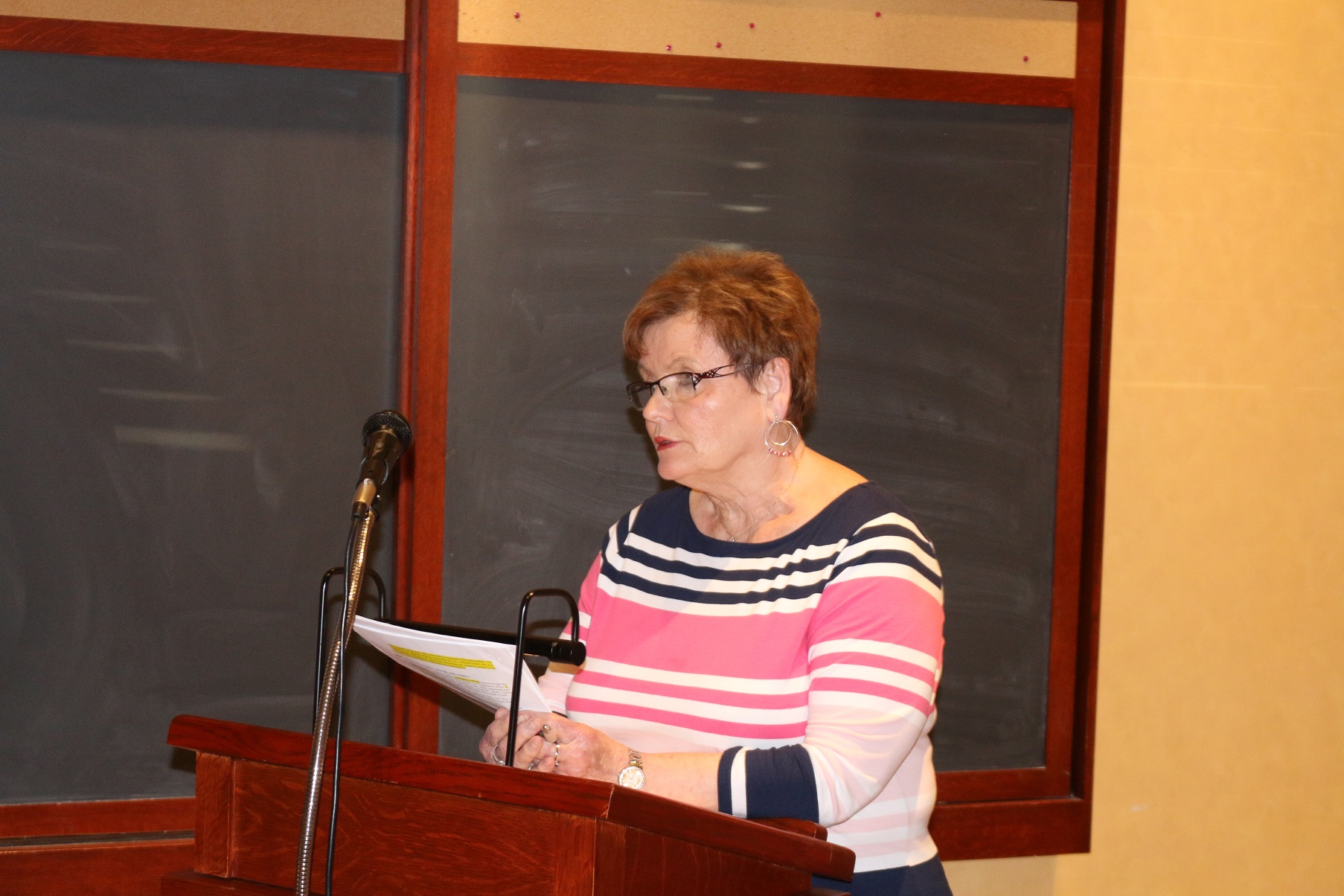
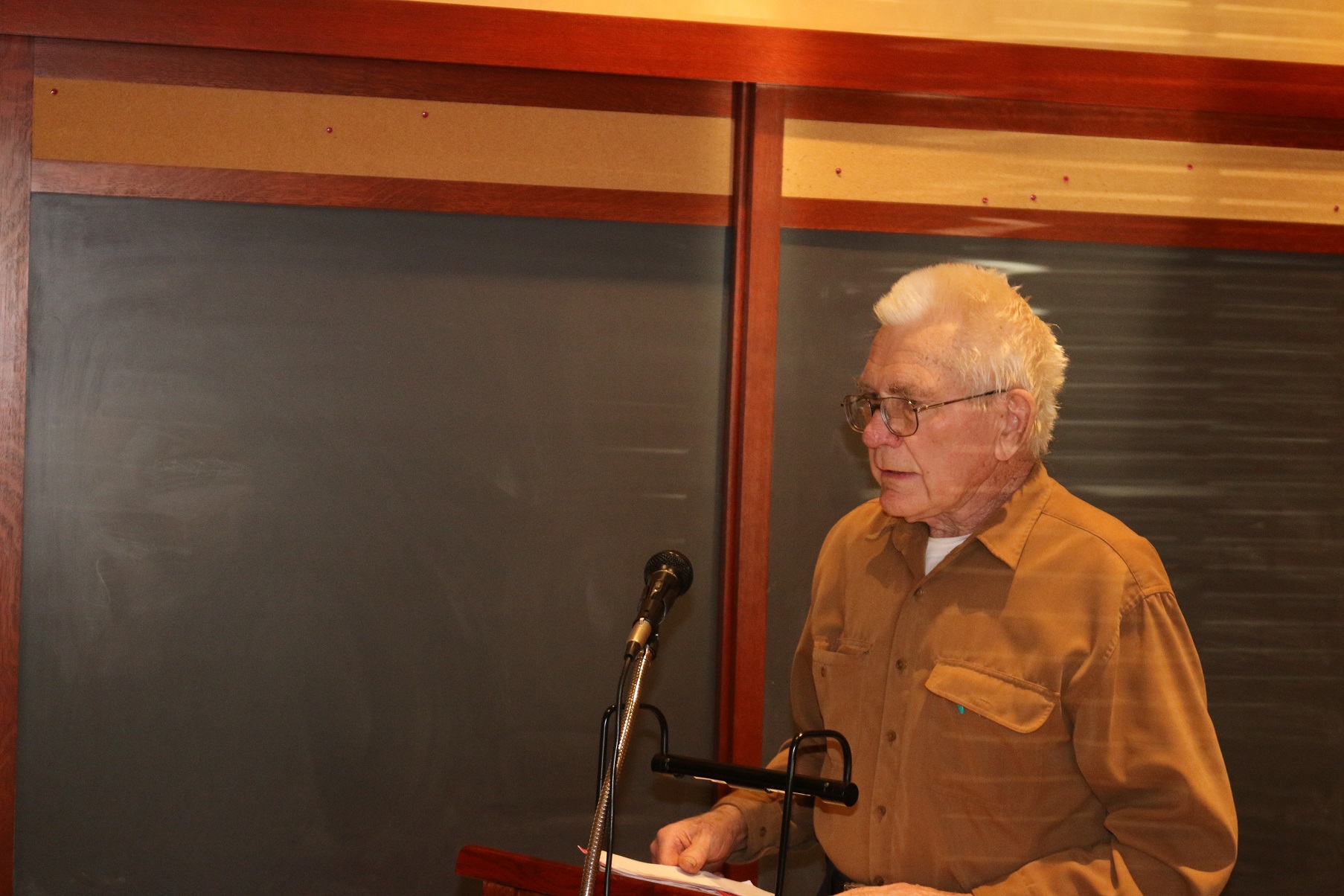
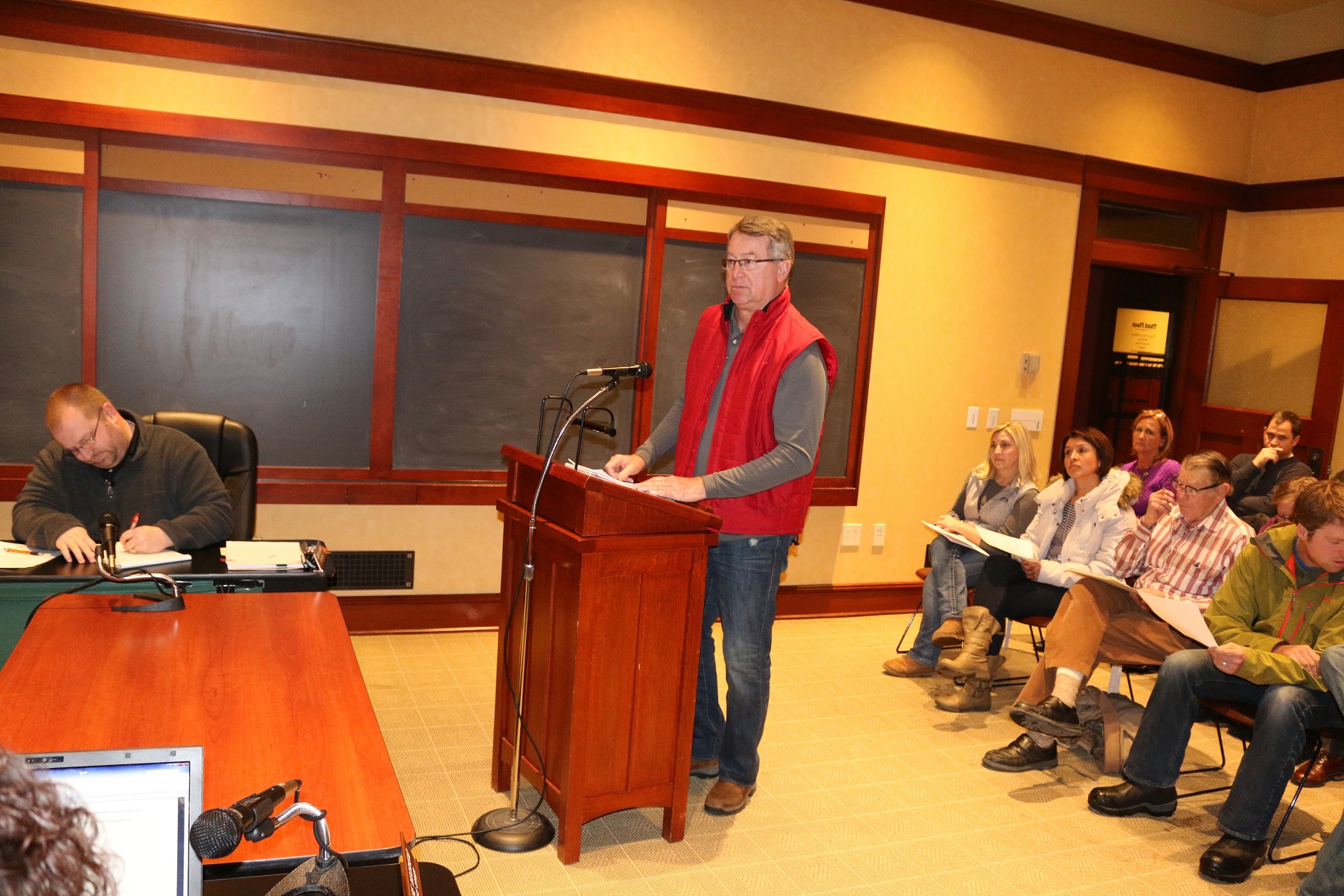
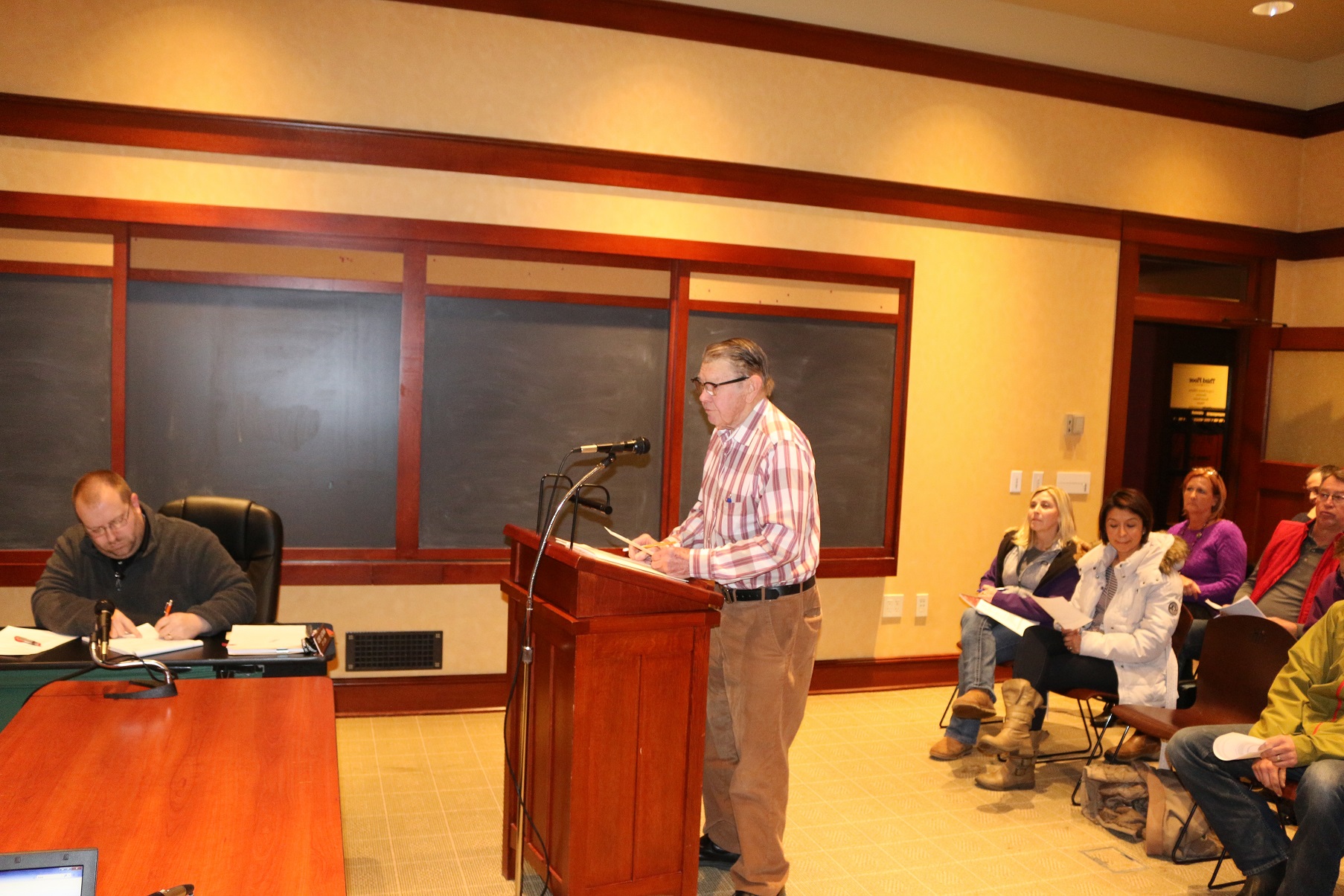








Madrid, even in a town that cannot pronounce its name and has no pool or movie theater, has had new single family housing starts for the past five years because of property tax abatement. Ed Jeffress Madrid
A very interesting and in depth article. It is unfortunate the Perry City Council has not seen the problems presented here sooner. Mr Diaz is correct the housing situation and the perception of Perry and the schools should have prompted a response long ago. It is great a task force is working on these problems. I wish them and the city of Perry and the Perry School District much success in this herculean task. In Regard the low income housing across from Pattee Park I hope we are not creating problems for park users and the police. As the saying goes “when you find yourself in a hole it is time to stop digging.”